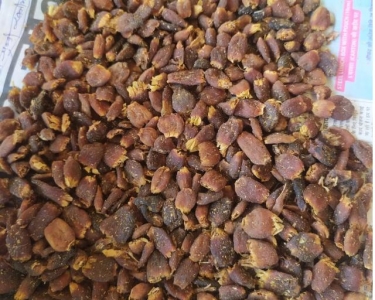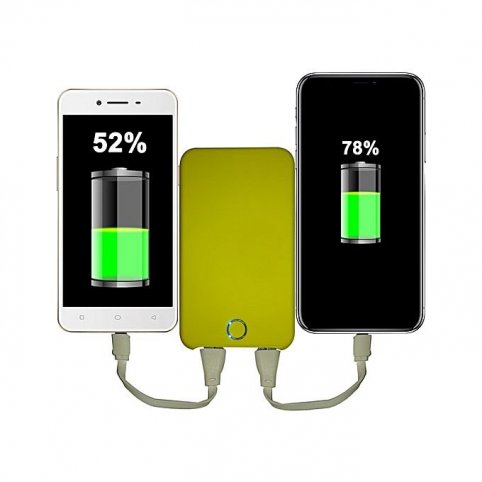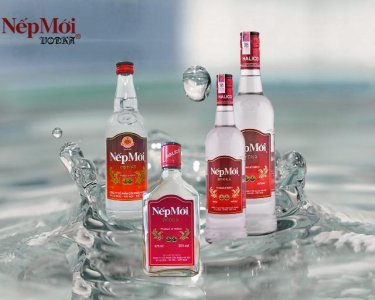Vegetable oils
Couldn't find the product you want?
Fill out this form to request the product.
Products You May Like
Export from Democratic Republic of the Congo
The Democratic Republic of Congo is among the countries having the most abundant natural resources in the world. The DRC possesses 70% of the world's coltan reserves, about 30% of the cobalt reserves, more than 30% of the world's diamond reserves, and 10% of the copper reserves. The Congo is the largest producer of cobalt ore, and a major producer of copper and diamonds (the country is the 2nd largest producer of diamonds in the world). The primary economic sector of the DRC is mining. Other important economic sectors include agriculture, manufacturing and forestry.
The agricultural sector (including livestock, fisheries and forestry) represents the most important sector of the DRC's economy. This sector accounts for 40% of GDP and employs about 75% of the labor force. The main cultivated crops are palm oil, sugar, cocoa, tea, coffee, cashew nuts, rice, cotton, maize, cassava and rubber.
The manufacturing sector accounts for 5% of GDP, the main activity being food processing. The industrial sector is limited to the production of steel, chemicals, construction materials, textiles and light manufacturing. The construction sector accounts for 7% of GDP and the transport and telecommunications is about 6% of GDP.
Forests cover 60% of the DRC and here are vast timber resources. Forest products are an important export commodity.
The Democratic Republic of the Congo is the world's 101st largest exporter, its main exports being copper ore, refined copper, cobalt, diamonds and wood. China, Zambia, Italy, South Korea and Finland are the DRC's main export partners.
Import to Democratic Republic of the Congo
The Congo has the potential to become one of the richest countries on the African continent and a driver of African growth, as it has 80 million hectares of arable land and possesses rich reserves of over 1,100 minerals and precious metals.
The DRC government is working closely with the World Bank in order to improve the country's economic governance. The main objective of this cooperation is to strengthen governance and transparency in the extractive industries (forestry, mining, and oil sectors) and to improve the business climate.
The Democratic Republic of the Congo is the world's 120th largest importer, its top imports being refined petroleum, packaged medicaments, excavation machinery, manufactured goods and food products. China, South Africa, Zambia, Belgium, Luxembourg and Tanzania are the DRC's major import partners.
Vegetable oil is a triglyceride extracted from a plant. In terms of consumption as a food product, vegetable oils are seen as the healthier alternative as they contain more unsaturated fatty acids than animal fats.
Sell vegetable oil on Export Portal, get the best deals and constant profit on international level.
Buy vegetable oil on Export Portal, not a simple trade platform, but a secure, profitable and trustworthy eCommerce portal for international trading and B2B.
Oils extracted from plants have been used since ancient times and in many cultures. Many vegetable oils are consumed directly, or indirectly as ingredients in food – a role that they share with some animal fats, including butter, ghee, lard, and Schmaltz.
Many vegetable oils are used to make soap, skin products, candles, perfumes and fragrances as well as other personal care and makeup products. Some oils are particularly suitable as drying oils, and are used in making paints, dyes, ink and other wood treatment products. Dammar oil (a mixture of linseed oil and dammar resin) is used almost exclusively in treating the hulls of wooden boats. Vegetable oils are increasingly being used in the electrical industry as insulators as vegetable oils are not toxic to the environment, biodegradable if spilled and have high flash and fire points.
Join us now, buy and sell fats and oils, expand your export and import businesses, build up strong partnerships! On Export Portal you can choose the best seller or manufacturer, who are going to serve you a range which stands up to your quality expectations.
Customs requirements of Democratic Republic of the Congo
Democratic Republic of the Congo Customs Contacts
Website: http://douanes.gouv.cd/
Email: info@douanes.gouv.cd
Address: Immeuble SANKURU, Royal, Boulevard du 30 juin, Gombe, Kinshasa, RD Congo
The Democratic Republic of the Congo is a country situated in Central Africa, bordered by the Republic of the Congo, the Central African Republic, South Sudan, Uganda, Rwanda, Burundi, Tanzania, Zambia, Angola and the Atlantic Ocean. The Congo is the second largest country in Africa by area and the eleventh largest in the world. The country is a member of the African, Caribbean, and Pacific Group of States, Common Market for Eastern and Southern Africa (COMESA), World Customs Organization, World Trade Organization and other international organizations.
Tariffs
The Democratic Republic of the Congo is a member of the Common Market for Eastern and Southern Africa and thus applies the COMESA common external tariff (CET).
There exist 3 categories of taxable imported goods:
1. raw materials and capital goods - 0%
2. intermediate goods - 10%
3. finished goods – 25%
Sensitive products will be given differential treatment in terms of application of the CET.
Most customs tariffs are ad valorem and are on a c.i.f. (cost, insurance and freight) basis.
Importers will also have to pay a value-added tax (VAT) of 16%.
Product certification, labeling and packaging
The DR of the Congo does not have its own national standards, but rather applies regional and international organizations’ standards, including the WTO, COMESA, South African Development Community), ISO (International Organization for Standardization) and ARSO (African Regional Organization for Standardization).
While importing products into DR of the Congo, importers will have to present import licenses, certificates of conformity and health certificates.
French labeling is required, but not strictly enforced.
Documents for import
- Certificate of Origin
- Commercial Invoice
- Packing List
- Bill of Lading (bill of lading) or Air Way Bill (Air Waybill)
- Health certificate
- Phytosanitary certificate
- Import license
- Certificate of Insurance
A detailed information about customs tariffs for all product categories can be found here:
www.bitd.org/Download.aspx?ID=603
Sources:
http://web.ita.doc.gov/tacgi/OverSeasNew.nsf/alldata/Congo%20(Democratic%20Republic%20of%20the)
www.bitd.org/Download.aspx?ID=603





